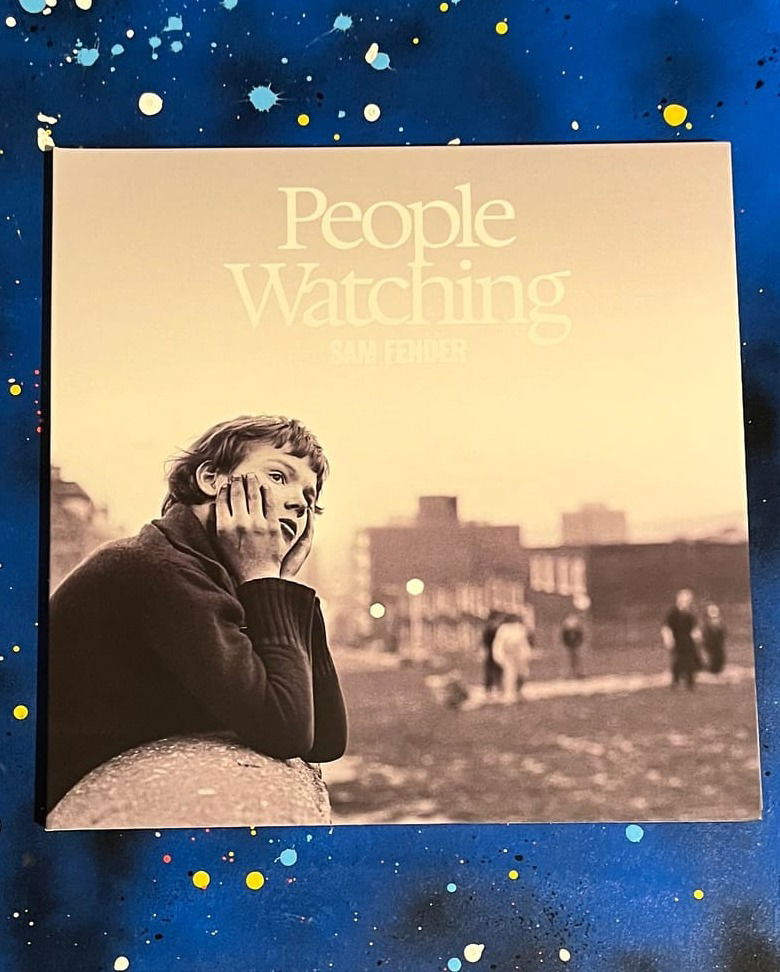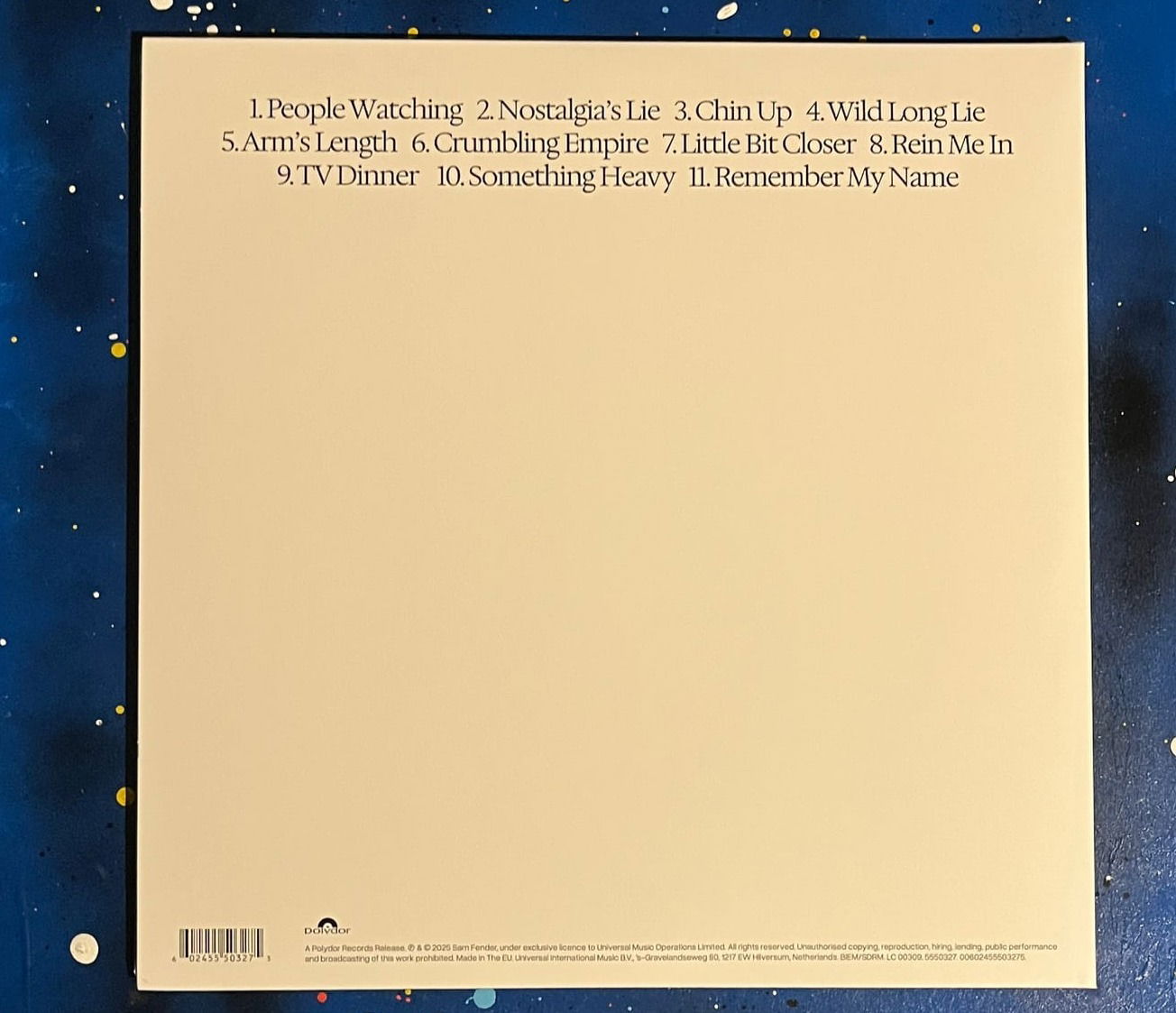Sam Fender: People Watching

Over the past few years, Sam Fender has firmly established himself as one of the most compelling indie artists of recent times. Since the release of his debut single, 'Dead Boys', he has emerged as one of the most vital voices in British music. Arriving on the scene at a time when white male singer-songwriters dominated the charts, Fender quickly set himself apart. His sharp social commentary and anthemic choruses have not only reignited the UK’s love for guitar music but also shed light on pressing issues both at home and across the world.
Fender’s music is marked by heartfelt, self-critical, and often brutally honest introspection both about himself and those around him. Songs like 'Spit of You' captured the complex relationship that many young men have with their fathers, while 'Seventeen Going Under' provides a raw and candid account of his upbringing in North Shields, his mother’s illness, and the societal neglect they faced. The track became one of the most significant guitar-driven anthems of the last decade, resonating deeply with listeners and climbing to Number Four on the UK Singles Chart.
His third album picks up where he left off with 'Seventeen Going Under'. 'People Watching' exploring the lives of those he has encountered, both at home and beyond. The album delves into themes of working-class struggles, tragedy, fame, and more. Through this record, Sam reflects on the lives of his loved ones and peers from the perspective of someone who has managed to break free from the constraints of his working-class upbringing.
The albums title track 'People Watching' continues a trend of both the album and lead single having the same name. Like the previous two efforts 'Hypersonic Missiles' and 'Seventeen Going Under' the song is a radio friendly indie anthem, helped by the production of Adam Granduciel (The War on Drugs) however, the lyrics are what makes the song special, written about Annie Orwin a lady Sam described a a surrogate mother. It talks about Sam cared for at the end of her life, and his journey through North Shields to head home in the final days of Annie's life. Sam examining his surroundings, looking at the space he grew up in. It's a theme explored across the whole record. Its an album that see's Sam taking stock of the characters, and surroundings that have made Sam who he is today.
'Crumbling Empire' sees Sam explore the poverty he has seen on tour, and relating back to the effects of Thatcherism of his own hometown North Shields. On this track Sam also addresses his ability to talk on these working class struggles. “I’m not preaching, I’m just talking / I don’t wear the shoes I used to walk in,”This one of my favourite songs Sam has done to date, a perfect enscapulation of the universal and the personal, that see's Sam create something relatable to his fans but also deeply personal to him

'TV Dinner' is another high point, a piano ballad that see's Sam highlight how the music industry deals with working class artists and address his own struggles with fame. One of the most poignant lines in this track talks about the death of Amy Winehouse 'Like Winehouse, she was just a bairn/ They love her now but bled her then. Sam commented how the press treated a working class singer when she was struggling and then after her death, the press and public's perspective totally changed.
'Chin Up' is almost Oasis like in it's sound and see's Sam tackle his own life compared to his friends, admitting he's "entitled, idle and dumb, twenty-eight, still sucking my thumb” whilst looking back home at those he grew up with "My friends at home are in pain/ Chucky debt, God, I hate cocaine." He explores drugs and his friends more on 'Wild Long Lie'. A song about heading home, familar for those who head back to the place they grew up in at Christmas example. He tackles the drug, in a more human way, this is not about tales of pop stars indulgence with the white powder, or even celebrities tales of rehab. It's much more brutal, he talks about it being a part of every day life in Shields, a sobering thought because the towns and cities we grew up in. It's prevalent there to.
The album ends as it starts, with a beautiful tribute to someone close to Sam. 'Remember My Name' is a beautiful piano ballad, that see's Sam and band joined by Easington Colliery Band. The song initally emerged with Sam playing it on an out of tune in a Newcastle pub. It has transformed into a tribute for his Grandmother, written from the perspective on his Grandfather, who cared for his wife whilst she had dementia. Both of these have now sadly passed away. The song is deeply personal revealing the addres of the council house they lived in and where Sam spent time as a child " 11 Wark Avenue."
The tribute to them both is spectacular, Sam's family had worked in the mines, and Sam asked for an old mining hymn 'Gresford' to weaved in to the arrangement. When talking about the song Sam said. "I knew I wanted to have a miners' brass band on the track.
"I went through all these bands and I chose Easington Colliery Band because they were the best and they'd won all these competitions.
"We recorded them and f***ing serendipity - Easington Colliery is very likely where some of my maternal family worked, as they were in mines all across County Durham.
"I didn't know until my mam told me. That's the universe at work right there."
The album ends with a finish that swells and see's Sam reach new sonic highs, but throughout its 48 minute run time, there is numerous special moments. Sam has given fans some of his best work to date. With huge shouts stating he should headline Glastonbury, this album has proven that he should be up there. He has reiginited an interest in guitar music, and in recent memory written some of the most poiginant pieces of music. If he does take to the stage on the famous Pyramid in June, he has 100% earnt it. If he doesn't he has the small matter of some of his biggest outdoor gigs to date.
Thank you for reading
Jack